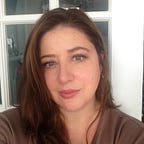The Self-Fulfilling Prophecy Loop Of Anne Heche
Anne Heche has died, they’ve said. They’ve said her heart is only being kept alive by machines to prepare for organ donation. They’ve said she’s gone, brain dead apparently. What an epic way to go out, though. Driving 90 mph in a cobalt blue MINI Cooper Clubman, headlong into a concrete house at the end of a T-shaped street. Thankfully, no one else was killed or seriously injured, but a woman has lost her house and all her belongings. If Heche had survived, then she would’ve probably been brought up on charges; at the least, reckless driving.
I was first introduced to Anne Heche by way of the long-running NBC soap Another World. The stunningly gorgeous girlfriend of one of my older brothers, I have four, used to watch this soap so I started to watch it as well. Heche played a gemini twin on Another World, playing equal parts of meek and mannered Marley, and firecracker Vicky. I thought Heche was so classically beautiful, even way back then. Her bone structure was from a bygone Hollywood era.
Anne seemed to be defined more by her relationships than by her films. And she was a great actress. She dated Steve Martin for a few years before she began her most famous relationship with Ellen Degeneres.
After her public break-up with Ellen, Heche had an erratic meltdown, a complete break from reality, where she was going door-to-door in Fresno, talking about taking children to heaven with her, referring to herself by Celestia, a dissociative self-identity. Heche told Barbara Walters in a 2001 ABC interview:
“I think everything I’ve done in all my insanity was to try to get my parents to love me,” she says. “My father loved movie stars. I decided I needed to become famous to get his love. My mother loved Jesus. That was her thing. So I wanted to become Jesus Christ.”
As an adult, Heche says she confronted her mother about her father’s sexual abuse. “She hung up the phone on me,” Heche recalls. “To have gone through so much work to heal myself and have my mother not acknowledge in any way that she was sorry for what had happened to me broke my heart.”
Heche had lost three siblings; Susan to cancer, Nate to car accident and Cynthia in infancy, and her father to AIDS. She said her brother committed suicide by driving into a tree three months after her father’s death. He was only eighteen when he died.
Isn’t it ironic that Heche would then deliberately drive into a house thirty-nine years later. And isn’t it ironic that the only family members left are her estranged mother, Nancy, and look-alike sister, Abigail.
Often with stigma-inducing mental illness, we’d like to think it’s genetic or organically derived. But mental illness can be brought on by growing up in chaotic environments like Anne Heche’s. She seemed to later mirror the crazy she was covertly raised in, before being severely gaslit by her family, and herself. All I know is Heche had to be in such a dark and desolate place to do something so severe, erratic — final.
I think there was a real beauty and truth in her hot mess brokenness. Like most truth tellers, she played the mirror to everyone else’s rigid absurdity, starting with her mother and family-of-origin. People, like Anne, often pay a steep price for being so real and raw. There’s a propensity for others to fear and shun, and create a dismissive, crazy narrative so that people, like Anne, never get the validation that’s due to them. In addition, I think she’d slip into a self-fulfilling prophecy loop after every subsequent break-up based on the pervasive crazy narrative set forth by others. I think in the end she just got tired of fighting her way out of the mental trenches, and just said, “Fuck it!” Thankfully, no one else got hurt or killed, including the lady’s pets whose house she crashed into. But I get Anne’s pain nonetheless.
